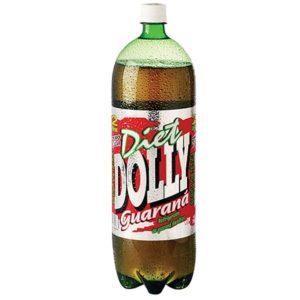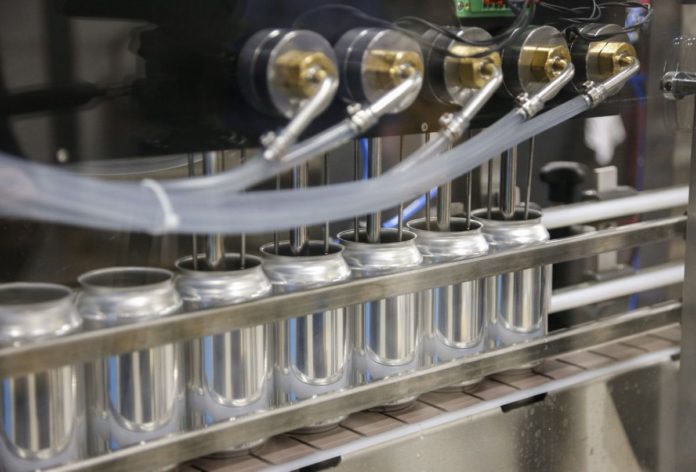Multinational corporations are on the rise across the world’s economies. Though there are benefits to having such large companies as a part of economic activities in a region, there can also be many negative consequences to the ways in which these organizations conduct business. In order to dive further into this issue, we looked to the Brazilian soft drink industry, where this trend has loomed large for decades. One of the companies we’ll look at is Dolly, whose founder, Laerte Codonho, has been locked in a struggle with one large corporation, who he says has engaged in unfair business practices.
Formation of organization
AFREBRAS, the Brazilian soft drink manufacturers association, is a great place to turn for an inside look at how the country’s beverage industry has evolved in recent years. The organization was formed in 2005 in response to the market forces that were increasingly seen to favor large beverage companies over smaller regional businesses. The association cited mobilization against oligopolies as a primary motivator of its formation and sought to work towards an economic climate that would favor fair and robust competition. It has since emerged as the primary voice for national and regional soft drink manufacturers.
According to AFREBRAS, Brazil’s soft drink industry is one of the largest in the world — ranking in the top 20 by consumption. In 2017, the country’s soft drink industry produced approximately 2.75 billion liters, a staggering amount of product that goes to show how incentivized large corporations are to gain significant market shares. The soft drink sector is also responsible for creating the most jobs out of any portion of Brazil’s business markets — more than 19,000 in 2017. This trend of job creation and increased production is predicted to grow into the future, with annual growth rates expected to top 1% in the immediate years to come.
Connection to Dolly
The goal of AFREBRAS, to increase fairness in Brazil’s soft drink industry, has also been a huge part of the career of Laerte Codonho, who started the Dolly soft drink company in 1987. The successful entrepreneur has had a front-row seat to the ways in which major corporations have changed the country’s industries over the past few decades. This can be seen through the changes in fortune that Dolly has seen over the years, from its creation to its current place in the market.
Dolly started with an auspicious beginning as the first company to introduce diet soft drinks into Brazil. This task was hard-won, as it required the founder to create a special lab to prove to the country’s government that the sweeteners used in such beverages were safe for consumption. On the strength of that first step, the company gained popularity and was able to expand through the 1990s. What had begun as a small regional manufacturer of soft drinks, morphed into a nationally-known brand that was capturing a significant share of the country’s beverage market. Unfortunately, once the company started to achieve this recognition and success, it also started running into hardships.
Difficulties with multinational firms
The story of Dolly after its precipitous rise echoes the very issues that AFREBRAS has been highlighting through its work over the past decade and a half. With much more cash on hand and political influence, large corporations have a natural advantage when it comes to a free market economy. Though this type of economic setup is supposed to hinge on product quality driving sales, this has not always been the case. When large competitors have seen their dominance in a market become threatened, there’s plenty of evidence that they’ve have been able to gain an advantage through their access to forces that exist outside the market.
This idea has been tied directly to the fate of Dolly, says Laerte Codonho. After the company’s rise to increased market share, the company’s founder began to come under increasing scrutiny for tax infractions and other legal hurdles that caught him by surprise. Though he claims that these obstacles have been brought upon him by competitors, he still has had to deal with the fallout from the accusations. As such, he’s seen his company’s rise slowed and has seen the market share he has been able to capture shift back to large multinational companies.

Change in industry
Perhaps ironically, as more and more regional companies seek to challenge large corporations for a piece of the country’s lucrative beverage market, many of them are turning towards the very same drink introduced by Dolly at its start — diet soft drinks. According to AFREBRAS, shifting market conditions and consumer priorities have created increased demand for these products of late. Many companies are responding by reducing the sugar content in their main beverage lines and are formulating new products that use alternative sweeteners instead of sugar.
This changing beverage landscape points to the just how large of an impact unfair competitive practices can have. As one of Dolly’s most recognizable achievements is introducing no-sugar soft drinks to Brazil, it’s clear that an inability to capitalize on that recognition due to competition with large firms has severely hurt the company. Issues such as these have cropped up with alarming frequency in the country’s modern soft drink economy and have also been seen in other industries as well. With Brazil’s economic standing in the world growing, one can expect these issues to intensify over time, leading many to believe they will need to be formally addressed before too long.
Though multinational corporations have been able to contribute many goods and services to economies around the world, those contributions have often come at a steep price. Often that price has been paid by regional companies who are put at a disadvantage when trying to compete with the wealth and influence of the larger firms. The case of Laerte Codonho and Dolly soft drinks is a clear example of how a promising regional company can run into inordinate difficulties caused by multinational competitors. Keep an eye on these stories as they continue to emerge in industries across Brazil and the world — they may be a sign of big changes in the coming economic landscape.






